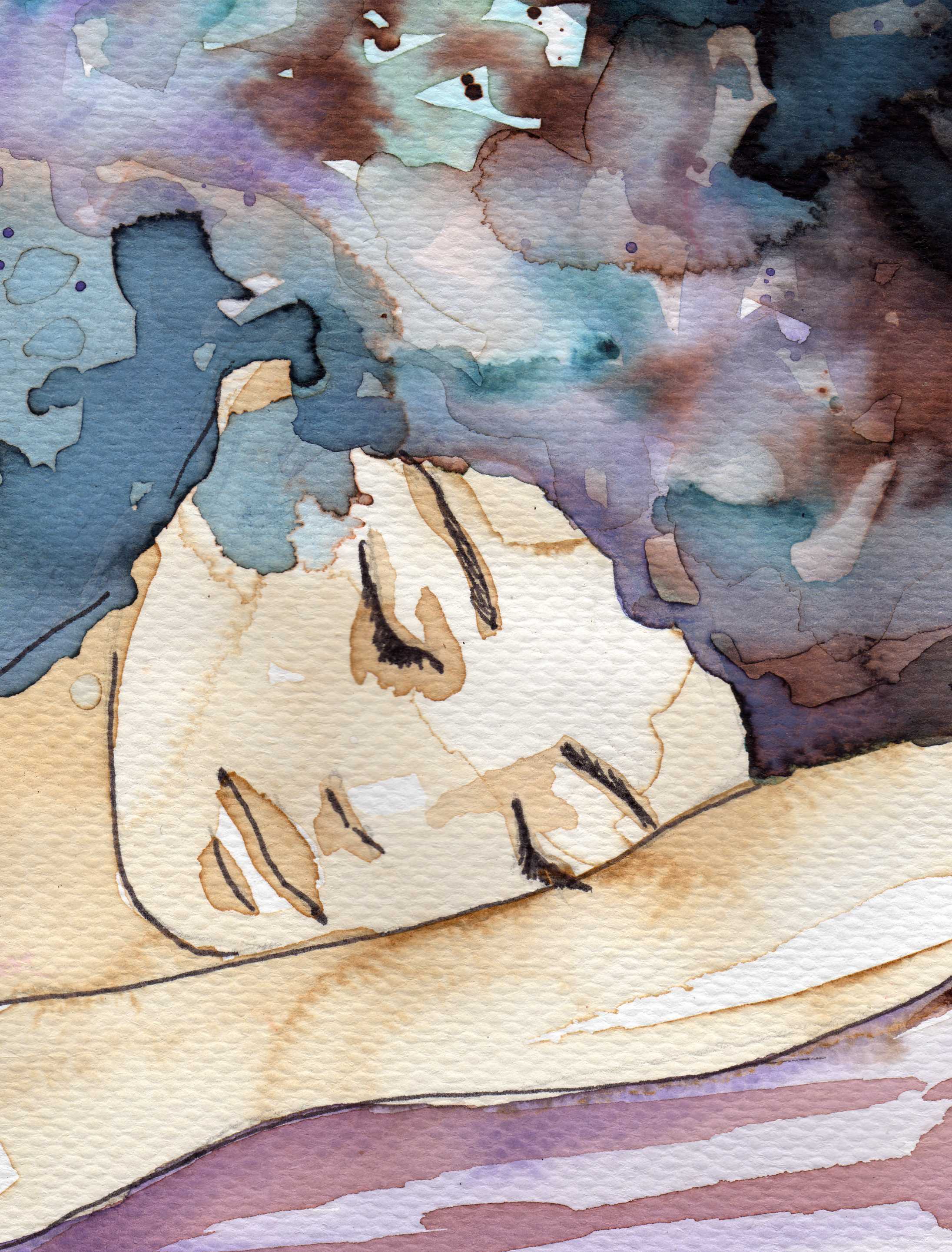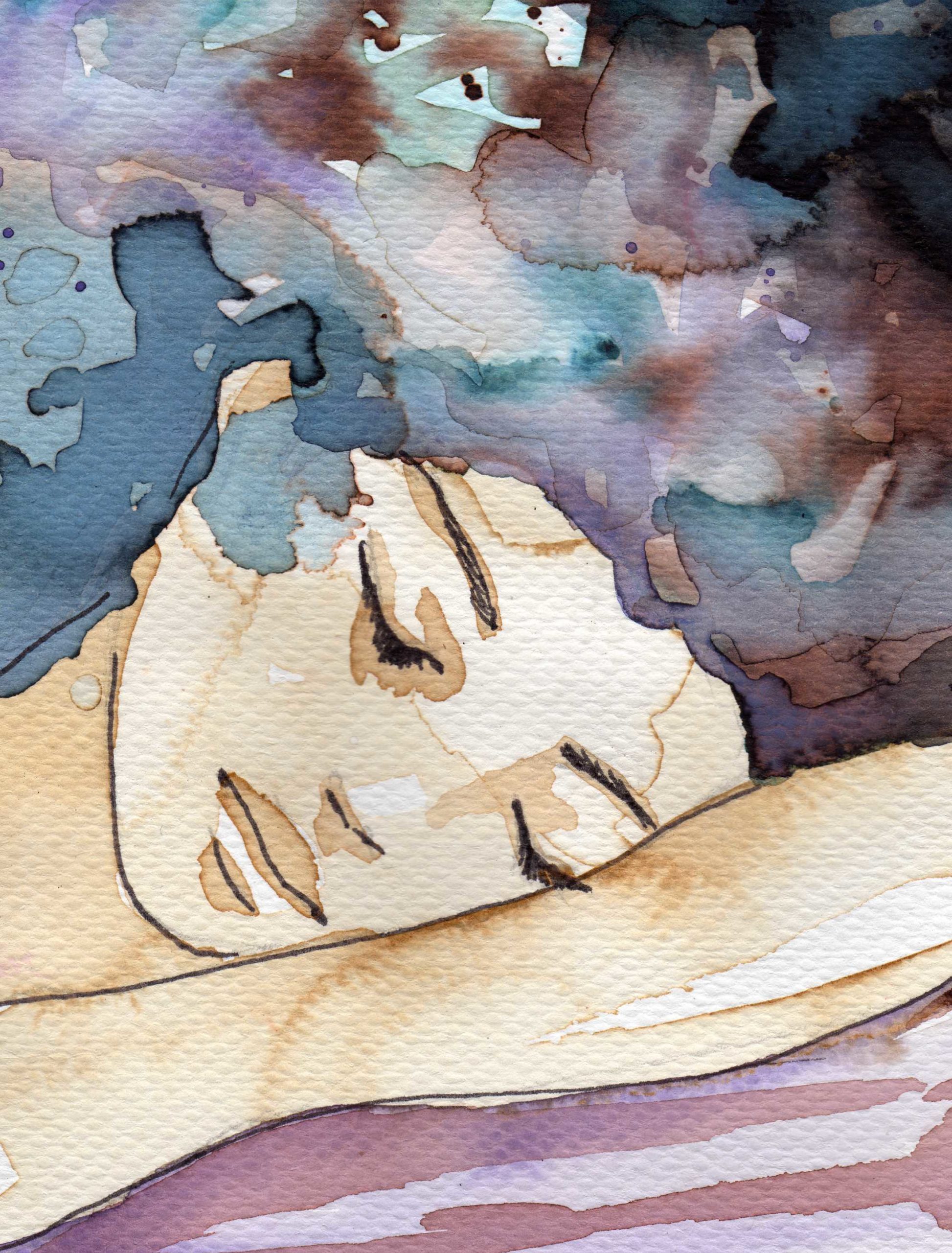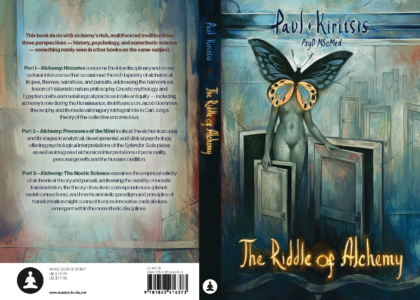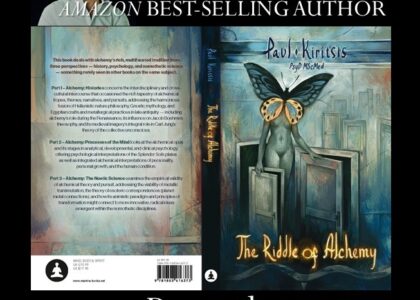
Dreams are phenomena we all experience yet seldom discuss. In fact, the omnipresence of dreams in our day-to-day lives would lead one to believe that they might comprise a popular topic for casual conversation amongst co-workers and acquaintances. Nonetheless, this doesn’t seem to be the case! I believe that this indifference to dreams has more to do with the ambiguous and convoluted front they present to those untutored to the language of the subconscious mind than to anything else really. Once the paralytic condition of sleep has overcome the physical body and consciousness has inverted deep in the vast recesses of our own headspace, the ego or the entity we recognize as “I” absconds to an alternative, subtler realm of subsistence where the laws of the universe can easily be bent or transcended.
In the dream world, the perception of whole persons, familiar or unrecognizable, as well as events and circumstances seem to be at the mercy of the prima materia. An entity which appears to be a brother or father may swiftly turn into an ominous stranger or some composite being alien to the conscious life of the dreamer; a cluster of events that progress chronologically in the consensual reality of waking consciousness may morph and mould into one another in ways which would seem completely illogical and outrageous whilst awake; and one’s field of vision may shift from first-person intimate (through one’s own eyes) to third-person objective (looking down at oneself) and back again without alerting the participating personality that the train of experiences is strictly internal and intrapersonal. This open violation of the laws that demarcate the frontiers of microcosm and macrocosm, of laws that clearly define what is held within oneself and what belongs to the cosmos without, can make the personal dreamscape a pleasant and enchanting but also a terrifying, disconnected, and disorientated universe. It also means that the whole continuum of emotions which are normally fettered by the intellect and by socio-political and moral conventions are bound to garner a much more profound and vibrant expression, making the dream realm appear that much more “real” and instinctively meaningful than events that play themselves out within the contracted vibrations of everyday life.
When we dream, there’s a complete absence of continuity and consistency. A pleasant, relaxed venture to the beach to catch some vitamin D may turn into a car race with your niece’s colourful collection of stuffed animals; the European Alps or the Tibetan Highlands might be the sight of a cold-blooded murder that you single-handedly premeditated and carried out to your schoolmates’ detriment; and a theriomorphic stranger might appear and caress the nape of your neck in a high-ceiling room of some medieval castle to the simultaneously banter of a talking male cat who won’t stop telling you how much he loves that you’re a Renaissance painter. Naturally events and phenomena of this sort have an authentic quality and logical ring to them in the dream state, one just as ordinary as gulping down a can of Coca-Cola or taking in a breath of fresh air. The extraordinary seems ordinary and the impossible becomes the rule of the day. Only upon awakening is everything reversed; words and actions that made complete sense at the time that they were experienced are all of a sudden little more than a sludge pile of garbled and inarticulate mental compost. The switch in conscious state makes minced meat of a narrative buttressed by the natural and mathematical laws (or complete absence of) of dream physics and moulded by the archetypal forms of the dreamer’s personal unconscious. Fascinating, right?
Save for the loss of meaningfulness that comes with awakening from a dream, another undesirable quality of this unconscious state is that it’s a passive and submissive experience. Dreaming is a bit like seeing a 3D action movie at your local cinema, or being strapped tightly into a small seat on the Road Runner Rollercoaster or some other thrilling Movie World ride where you never quite know where you’re going and where you’ll end up, who you’ll encounter and what they’ll do or show you, and what consequences you’ll have to endure as a result. To further confuse things, you never quite know if you’ll be forced into revisiting the past and seeing long-forgotten friends and deceased relatives, if you’ll be dragged into the future, or if you’ll be forced into becoming something or someone that your natural proclivities haven’t allowed for. Not knowing what the future holds does evoke an exhilarating sense of anticipation, however the latter is disenchanted by the fact that there’s no degree of freedom. When we dream we are like handcuffed prisoners forced to sit and stare at a screen for disciplinary purposes or like a string puppet which moves in accordance to the conscious actions of the puppeteer. The fabric of the unconscious curls its deadly tentacles around our egos and detains us from surfacing and inviting in desirable mental images and ideas. Instead, it chains us to a jagged rock of obsidian and delights in showing as aspects of our own being and the cosmos that we’ve done everything in our power to suppress, rebel against, or obliterate from our cerebral chips completely. Because these undesirable aspects cannot be hindered from expressing themselves in the unconscious state, dreamers will often have to endure and ride out experiences and phenomena that encompass the potential to become full-fledged nightmares and night terrors. It goes without saying that these terrifying encounters leave one feeling helpless and vulnerable. Perhaps the worst thing about them is that they’re not negotiable.
But things don’t have to be that way! The feelings of helplessness, the notion of fatalism that sprouts when one knows that he is not master of his own destiny, and the stress of not knowing what people, places, and encounters are on the horizon can all be quelled by learning and mastering the art of lucid dreaming. What is lucid (or conscious) dreaming, you ask? Basically it’s a moment during the unconscious experience where the dreamer achieves some spontaneous exaltation of awareness and realizes that he or she is asleep. The acquisition of lucidity is an intensely liberating moment, one that could easily be compared to the titillation a scientist might feel upon discovering hard evidence for life on another planet or that of a physically disabled athlete who has miraculously reacquired the ability to feel and move his entire body again. An experience of this sort always involves a polar shift. The personal ego and the greater macrocosm, one bound by the passive role and the other by the active one, trade places. Now, the aspect of the ego-self being acted upon or moulded psychically invert and becomes the thing doing all the acting out and moulding.
Put differently the very thing that was formerly a pawn in a seemingly incomprehensible chess board whose pieces were being appropriated by a set of invisible hands is now the hand that facilitates the creative act itself. It turns the protagonist of an unconscious narrative into an author who can meticulously devise the plot, setting, and chronology; cognize the cast of protagonists and supporting characters; and write himself or herself into the script in accordance to the thought-desires of his or her own will. In many ways, lucidity is the closest most of us will ever get to experiencing a state of invincibility and indestructibility that often parades under the banner of “Godhood”. It means being able to do what you want, whenever you want, and with whomever you want for the entire duration of the lucid experience. You even have the option of being whoever or whatever you want. All you really have to do is focus the stream of your imagination; you must give it a conscious direction, so to speak. Concentrate on one thought-desire, on one image or idea, and let it unfold in the manner that you would during an episode of active imagination. Without meaning to attract to myself the allegation of blasphemy, I would go so far as to claim that lucidity is a divine experience where one literally becomes a god or goddess and the best things about it is that it can be easily harnessed with a little discipline and patience.
There’s a whole host of things we can do to increase our chance of having a lucid dream. The most important of these has to make do with increasing the time spent in the fifth stage of sleep or Rapid Eye Movement (REM) sleep. Most dreaming occurs during this stage, so stretching our subsistence in it also increases the likelihood of experiencing lucidity. REM sleep, also known as paradoxical sleep because it’s heeded by an amplification of brain activity or mentation and a complete inertia of the skeletomuscular system, occurs roughly one and a half hours into the sleep cycle and then repeats about four times throughout the course of the night. A healthy, uninterrupted cycle is characterized by about five sessions of REM sleep that increase in duration as time elapses. One practical thing that works wonders is setting the alarm clock to awaken you roughly ninety minutes or three to four hours into sleep, the approximate times that the first few REM segments occur. Make sure the alarm isn’t set to an assigned frequency such a particular radio station, for conversation or music is likely to break the hypnagogic spell through which dream segments are more easily retrievable. Once you are up do some light stretches and then proceed to amble about aimlessly for a good ten to thirty minutes before returning to the sanctuary of your own bed. The interjection of unconsciousness allows little conscious remnants into the sleep cycle that serve as moor posts in alerting the ego-self that a dream has commenced. We know for a fact that fragments of everyday experience are often duplicated in the dream state; hence any re-enactment of a experience or action that first occurred during a preceding state of induced conscious awakening should be a transparent and obvious cue that the ego is no longer operating in the external world of shared awareness. Whilst many other lucid dreaming techniques are flawed and tainted in some way or work only for certain individuals, the one just mentioned has enjoyed universal success.
Another obvious one is becoming intimately acquainted with your own personal dreamscape and with any repetitive leitmotifs that run through it or circumstances that might mechanically repeat through different or analogous scenes. The best process of dream recall is one that makes ample use of a dream diary. In the morning soon after waking, jot down every dream fragment you can remember and the thoughts, feelings, tastes, sounds, smells, sights, and any other sensory or perceptive information associated with each one. It’s always best to do so the second you’ve absconded the unconscious, in a hypnagogic state if you can. By not disrupting the conditional paralysis typical of sleep (i.e. muscle torpor, immobilization, and closed eyelids) you’re more likely to re-collect correctly and accurately. The more things you can remember about your dreamscapes the greater awareness you will end up garnering of your internal focus and tendencies. Everything in the cosmos adheres to certain blueprints and patterns and the personal unconscious is no exception. Often it will accurately measure, enumerate, and reflect, either symbolically or literally, the deepest concerns, fears, and anxieties of conscious life. When encountered in the dream world enough times, these personified or depersonalized elements of the self also become subtle moor posts able to alert an individual that he or she has entered the dream world. Similarly, concentrating the conscious will so that small and inconsequential details of the phenomenal world are habitually assimilated pays dividends when you are travelling through the dreamy netherworld because it increases the likelihood of recognizing an anomaly or some piece of animate or inanimate matter that just doesn’t seem “authentic” in its appearance and behaviour. In tuning into the painstaking mechanics of the inner and outer to attain this acute double consciousness an aspirant of lucidity further constricts the seemingly incompatible space between passive and active dreaming.
Direct knowledge of your dream world must be wrought directly by you, although there are numerous visual, auditory, and synesthetic cues that seem to be uniform across collective unconsciousness. A common one is looking into mirrors, an act which often embodies unconscious self-reflection. To give an example, in dreams your reflection might show a white orb, an angel, a devil, a black cat, a dinosaur, a tree, or even an inanimate object like a potter’s wheel and a table; what you see depends on your own deep-seated feelings about your personality, appearance, qualities, and reason for being. Another is written characters like letters and numbers; in dreams they will distort, change trajectory, or morph into different characters altogether when perused for more than a few seconds. Most people will also report inconsistencies and eccentricities in solid edifices; walls might contain geometrical shapes and colours that whirl about or fantastical images of persons and things that keep warping and fluctuating in a mechanical or atypical manner. Gravity is pretty much non-existent and one might find that things levitate, fly, and gyrate at random. Time, a human construct most dependable when operating in the external world of matter, also joins the long list of superseded theories in the dreamscape; a casual glance at a wall clock in a lounge room might show 3.00am only to indicate that it’s still 1.10am the next time you glance at it. Hearing a loud blast from outside could concurrently cause a burning sensation to funnel down your forearms, wrists and fingers. Instead of turning on the light in the bathroom pushing a switch might cause a jet of water to blast out from a hole in the ceiling, change the colour of your sweatshirt, cause the shower nozzle to expel dark chocolate, or spur the taste of sweet apple pie on the tip of your tongue. Obstructing vision by passing a hand over the eyes might incite a change of characters and scenery.
Generally speaking in a dream the mechanics of the universe as descried by the physical senses will not stay consistent for very long and actions or phenomena typically connected with one sense might all of a sudden involve an alternative one or even a whole cluster of them working in unison. These will obviously differ from person to person. The more effort we put into memorizing our personal cues, the greater the likelihood that we’ll recognize them during the dream state and ask ourselves the question, “Am I dreaming?” or “Could I actually be asleep at this very moment?” Anything that departs even marginally from diurnal logic should be questioned. Once queries of this type have been posed to the ego-self, you can be pretty sure that lucidity is on the horizon. If, by this stage, you have meticulously prepared a list of things-to-do during potential “conscious” flashes and spent time musing over them, then you should know exactly where to go from there. In the lucid condition things unfold in harmony with the personal will so sit back, relax, and let your imagination do all the image-forming!
Developing lucidity can also be helped along with positive affirmations, meditations, visualizations, and any other process aimed at rewiring patterns of thought and behaviour at a subconscious level. The most effective time to engage in any of these activities is instantaneously upon rising or just before going to sleep, for that is when ego consciousness is differentiating from its nocturnal nesting in the personal unconscious and hasn’t full re-established itself as the overarching authority of the mind. If circumstances permit, you might try repeating general phrases like, “Tonight I will have a lucid dream”, “The universe has bequeathed to me everything I need to experience a lucid dream and to control it at will,” or “Next time I’m dreaming I’ll know I’m dreaming.” More specific ones like, “Next time I see myself doing the crane dance with a bunch of wild animals from the African wilderness I’ll know I’m dreaming” or “Next time I feel several bullets ripping through my skull without as much as scrambling my brains I’ll know I’m dreaming” are also apropos. Try to stick with a theme or image that tends to repeat and is effortlessly recognizable as a personal dream cue. Make the affirmation a standard ritual in your everyday life as you would the gym, prayer, walking the dog, or taking a shower before bed. Somehow the act of transliterating and repeating affirmations consistently encodes the images associated with them into the subconscious. The latter then begins to express them concretely, voluntarily, and freely without having to seek consent from the conscious mind.
Save for the aforementioned, other techniques that have been advertised on the market as catalysts of lucidity like listening to wordless compositions or consuming spicy foods sand even dietary supplements like Ginko Bilaba, amino acid blends, and galantamine are all questionable because studies aimed at determining their efficacy in boosting or aiding lucid dreaming have repeatedly garnered conflicting evidence. Hence they will not be discussed here. Lucidity is a skill, and like any skill aptitude will depend on personal striving and effort. Don’t expect to experience prolonged endeavours communing with dead relatives, astral travelling, summoning your own spirit guides, building your own city, or unearthing past-life memories if you haven’t mastered the basics first. Whatever tools you end up utilizing always remember that your success rate will be contingent upon how well you memorize the mechanics and subtleties of the macrocosm as well as the echoing patterns, consistencies, and leitmotifs of your personal dreamscape. An intimate knowledge of the inner and the outer worlds are foremost of conditions conducive to lucid dreaming.
Finally, never say die. If you’re really serious about becoming a lucid dreamer you won’t stop after one or two failed attempts and you’ll definitely employ many different tools and different combinations of tools in your endeavour to attain it. In a word, perseverance is the key ingredient to success.
Sweet dreams folks!








